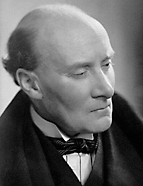

We mentioned earlier that Major’s biography, published in 1868, was one of the main sources in the making of Prince Henry The Navigator. Aside from this work, the historian has also resorted to other international studies, such as Untersuchungen über die geographischen Entdeckungen der Portugiesen unter Heinrich dem Seefahrer (1842), of Johann E. Wappäus, and Henri le Navigateur et l’Académie Portugaise de Sagres… (1890), published by Henri E. Wauwermans. However, what is important to note here is Beazley’s knowledge of Portuguese historiography on this subject, and, more importantly, of the sources from Prince Henry’s time. As far as the Portuguese historiography is concerned, the British author has pointed to Os Filhos de D. João I, by Oliveira Martins, as one of his main references, having also made use of Herculano’s História de Portugal to put in context the medieval Portugal. Regarding the sources, he often used Crónica do Descobrimento e Conquista da Guiné…, by Gomes Eanes de Zurara, which was well known to him as he worked on its translation to English together with Edgar Prestage. From the same chronicler, he also used Crónica de D. João I, having also checked the Crónica de D. Duarte and the Crónica de D. Afonso V, both published by Rui de Pina.
Even though Prince Henry The Navigator is, perhaps, Beazley’s most complete work concerning the history of Portugal, the historian would publish two papers years later, in which he took up topics mentioned in the Prince’s biography. They are “Prince Henry of Portugal and the African Crusade of the Fifteenth Century” (1910) and “Prince Henry of Portugal and his Political, Commercial, and Colonizing Work” (1912), both published in The American Historical Review. In them he tried to emphasize some ideas he had already presented, such as the religious character of the Portuguese maritime enterprise, considering it a Crusade, and the decisive role Prince Henry had played in the elaboration of that enterprise and in the revitalization “of those energies which makes the fifteenth century so memorable” (“Prince Henry…”, 1910, p. 12). Beazley has also contributed to reference works and journals of the historiographical and geographical fields. It should be noted the twenty-one entries he wrote for the Dictionary of National Biography, with emphasis on the text about Philippa of Lancaster, as well as the contribute to the renowned Encyclopaedia Britannica. Notorious is also his participation in The Geographical Journal – which remains the leading journal of the Royal Geographical Society –, having published several papers and critical reviews.
Prolific author, Raymond Beazley integrated the period of the British historiography that has established itself as “a truly reliable, well-founded research trend, justified on scientific grounds and not by circumstance”, and in which elements that had not hitherto had much relevance in the British historiographical work about Portugal were highlighted. Borges de Macedo emphasized, in that regard, the “need of Portuguese documentary evidence”, and the perception that knowledge of the history of Portugal would be indispensable “to analyse the background of English colonial expansion”.
